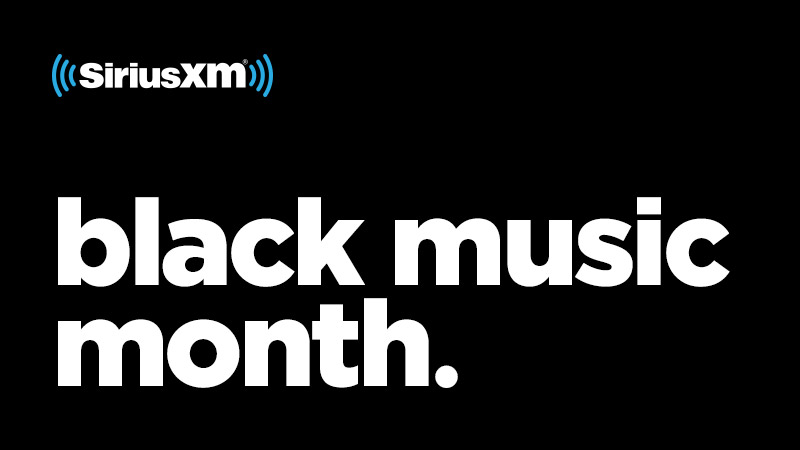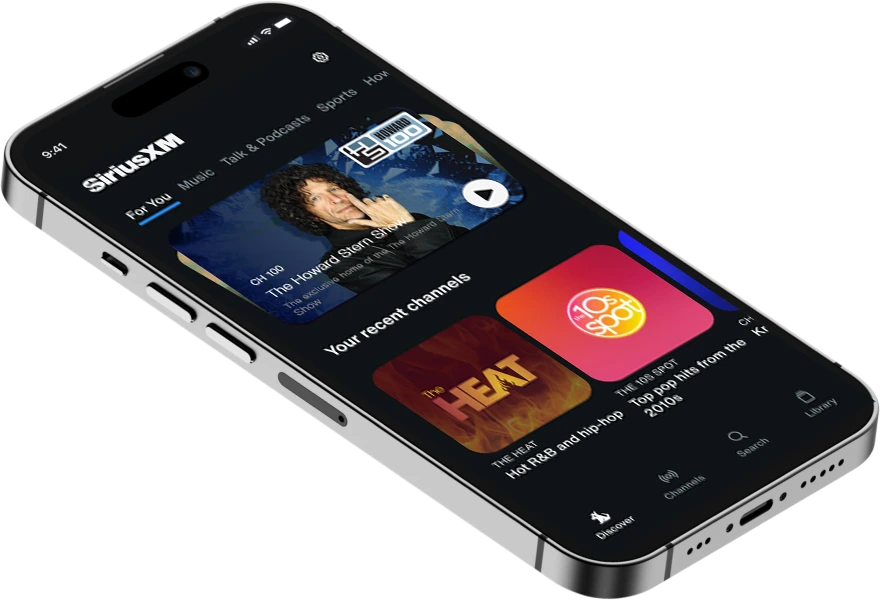Meet 11 Unsung Heroes of the Music Industry for Black Music Month
Since 1979, June has been designated as Black Music Month.

Since 1979, June has been designated as Black Music Month. Black musicians, composers, singers and songwriters have contributed immensely to American music despite many of them never receiving the mainstream shine and acclaim their talents and influence warranted. Many of these artists laid down the foundations for many genres and helped shape the music we hear today. Take some time to learn about a few of the unsung heroes of music history.
Teddy Pendergrass
With a powerful voice that made many women mercilessly throw their underwear on stage at his concerts, Teddy Pendergrass put his all into every note, every song and every magnetic performance. Many call him the prototype for the R&B lady-killer, paving the way for the Maxwells and Tyreses. He began his career in 1970 as the frontman for Harold Melvin and the Blue Notes, and his vocal prowess led to several hits for the group. When he went solo years later, his silky hit ballads Turn Off the Lights, Come Go With Me, and Love TKO kept him on top of the charts and at sex symbol status. However, his peers Marvin Gay, Isaac Hayes, and Barry White (each songwriters while Pendergrass was not) enjoyed bigger superstar status. Still, you can’t dismiss the influence and significance of Teddy Pendergrass. For any R&B crooner who comes out now and finds success as a lover man, thank Mr. Pendergrass for setting the stage.
Hear more from Teddy Pendergrass on: SiriusXM Love (Ch. 17), Studio 54 Radio (Ch. 54), and The Groove (Ch. 50)
Ohio Players
The Ohio Players’ brand of raw funk in the 1970s was creative and refreshing, bringing them a bevy of hits (Fire and Love Rollercoaster being two of the biggest) and platinum albums — Skin Tight (1974), Fire (1975), Honey (1975), and Contradiction (1976). The Dayton-based group’s sexually provocative album art opened the doors for artists like Parliament Funkadelic and Prince to put out suggestive and controversial LP covers. The nine-member funk-mastering band also influenced Zapp, the Red Hot Chili Peppers, Soundgarden, Dr. Dre, Snoop Dogg and P. Diddy. Fans of the aforementioned artists can thank one of the most eclectic and invigorating funk ensembles of the ’70s for their sound.
Hear more from the Ohio Players on: The Groove (Ch. 50) and Soul Town (Ch. 49)
Sister Rosetta Tharpe
She broke the rules before breaking the rules was considered cool. Born in 1915 in Cotton Plant, Arkansas, child prodigy Sister Rosetta Tharpe began singing and playing the guitar onstage with her mother at the age of 4. At 6, she joined her mother as a regular performer in a traveling evangelical troupe across the American South and was billed as a singing and guitar-playing miracle. She became a popular gospel artist in the late ’30s and had several hit songs, but she ruffled feathers in the religious community when she began mixing her gospel music with blues and jazz and performing in front of secular audiences. It was Thorpe who Elvis Presley listened to when he came home from school every day. Of course, he went on to become, well, Elvis Presley, while many barely know Thorpe’s name. The world owes Sister Thorpe, a musician who bravely crossed and intertwined genres, long overdue recognition.
Hear more from Sister Rosetta Tharpe on: Kirk Franklin’s Gospel Channel (Ch. 64)
DJ Kool Herc
You must call DJ Kool Herc a pioneer because he originated break beat dee-jaying. However, Clive Campbell, a.k.a DJ Kool Herc, who began dee-jaying in the early 1970s in the Bronx, is not as frequently mentioned in hip-hop history alongside Sugarhill Gang, Grandmaster Flash and the Furious Five despite Herc actually influencing them. He brilliantly isolated the instrumental portion of a record and emphasized the drum beat (the break) and then effortlessly switched back and forth from one break to the other. This essentially ended up being the blueprint for hip-hop music. And those dancers who rocked to his beats while he was mixing? He called them break boys and break girls (B-boys and B-girls), which later led to the word break-dancers. Herc never enjoyed the commercial success that folks like Grandmaster Flash did. However, we have Jay Z and Eminem because of DJ Kool Herc, so Herc is truly the unsung hero of the genre.
Hear more from DJ Kool Herc and his proteges on: Backspin (Ch. 43), Shade 45 (Ch. 45), SiriusXM FLY (Ch. 47) and Hip Hop Nation (Ch. 44)
Rufus Payne, a.k.a. Tee Tot
I bet you’ve heard of Hank Williams. But do you know who Rufus Payne a.k.a. Tee Tot is? Well, he played a huge part in what country music is today. In the 1930s he performed on Alabama streets as Tee Tot and taught a young Williams how to play the guitar. Of course, Williams went on to be a huge country star, and so did his son, Hank Williams Jr. But if Payne, whose music was never recorded, hadn’t shown the senior Williams the ropes, would he have gone on to being a big star? Even if the world hasn’t given him the credit he deserves, Williams Jr. has paid respect to his father’s teacher, saying Payne was “one of the most important men in the music business” because he changed “the entire world of music” by mentoring his father.
Hear more from Tee Tot’s proteges on: Outlaw Country (Ch. 60)
Holland-Dozier-Holland
It’s a shame that the brains behind the songs that made the Supremes, Temptations, Marvin Gaye and The Four Tops enormous stars are never really acknowledged outside of industry folk. Your average music fan has probably never heard of them. But thanks to songwriters Lamont Dozier, Brian Holland and his brother Eddie Holland Jr., the world experienced the Motown sound with hit records such as Where did Our Love Go, Baby Love, and Stop in the Name of Love by the Supremes; How Sweet It Is (To Be Love You) by Marvin Gaye; and Baby I Need Your Loving and I Can’t Help Myself by The Four Tops. Sure, the Motown stars were huge talents and great singers. But if they didn’t have the minds of Holland-Dozier-Holland behind them, would they have achieved the same amount of success?
Hear Holland-Dozier-Holland songs on: 60s on 6 (Ch. 6), The Groove (Ch. 50) and Soul Town (Ch. 49)
Willie Kizart
Legend has it that Willie Kizart’s guitar amp got damaged while he was en route to a Memphis recording studio in 1951 with his band, Ike Turner’s King of Rhythm. This accident caused the raw, rough, distorted, stunning sound on Rocket 88, widely considered to be the first rock ‘n’ roll single. So electric guitar masters like Jimi Hendrix, Prince, Keith Richards, Eric Clapton and Slash, who all took the instrument to divine levels, owe a lot to Kizart’s mishap.
Hear more from Willie Kizart’s proteges on: Classic Vinyl (Ch. 26), Classic Rewind (Ch. 27), Deep Tracks (Ch. 27), The Groove (Ch. 50), 60s on 6 (Ch. 6), 70s on 7 (Ch. 7)
Frankie Beverly & Maze
Before I Let Go has become the quintessential wrap-up song at the end of any party and will probably stay that way forever. But even with the smash songs these artists put out, they remain one of the most understated R&B groups. With big hits like Before I Let Go, Joy and Pain, and Can’t Get Over You, they are still rocking sold-out concerts halls because their music is soulful, passionate, and it resonates — something many groups can’t achieve. As Jill Scott told Essence last year, “Maze hadn’t put out a record in 30 years, but when Frankie Beverly was singing at a concert, you were there with your hands up in the air singing Golden Time of Day. The music had emotion, and it had a story. It is something that still feels good or sad or heartbroken because these are the things that human beings continue to feel.”
Hear more from Frankie Beverley & Maze on: Heart & Soul (Ch. 48) and The Groove (Ch. 50)
Cameo
Eccentric, electrifying and oftentimes comical, Cameo formed in 1974 after vocalist and New York clubber Larry Blackman — along with Tomi Jenkins and Nathan Leftenant — left a 13-member funk band to become the nucleus of the group. They had hit upon hit in the 1980s, including She’s Strange, Single Life, Word Up! and Candy, which still makes people run to dance floor at BBQs and weddings. With their memorable, campy videos and dynamic songs, Cameo never got the credit it deserved for being trendsetters of bizarre ensembles. (Blackman wore a bright red cup over his man-parts in several videos). While everyone thinks of Parliament Funkadelic and Sly and the Family Stone as the talented and outlandish R&B, Cameo needs to be added to the list.
Hear more from Cameo on: 70s on 7 (Ch. 7), 80s on 8 (Ch. 8), 90s on 9 (Ch. 9), The Groove (Ch. 50)
The Whispers
While the Commodores were getting a lot of shine and tearing up the mainstream scene, the aptly named group The Whispers were quietly making timeless, romantic R&B songs that still spark delightful, nostalgic feelings. Formed in 1963 and consisting of twins Wallace and Walter Scott and their friends Nicholas Caldwell, Marcus Hutson and Gordy Harmon, the quintet began singing harmony on street corners in Los Angeles and in nightclubs in the Bay Area. Not many people know that the Whispers put out a few dozen albums, many of which reached the Billboard 200, including their self-titled debut, which nearly went double platinum (it featured their biggest hit, And the Beat Goes On). They remained hit-makers well into the 1990s and are still performing and selling out venues.
Hear more from Cameo on: Studio 54 (Ch. 54), The Groove (Ch. 50) and Soul Town (Ch. 49)
S.O.S. Band
How many musicians — regardless of the genre — can say their first single went platinum, sold over 2 million copies and stayed on the top of the charts for five weeks? S.O.S. Band can. 1980’s Take Your Time (Do It Right) was a monster hit that put the Atlanta group on the map, but even with such a huge song and a magnificent entrance (their eponymous debut album went gold and sold over 800,000 copies), S.O.S. Band never quite crossed over into the mainstream or capitalized on the huge success of the song. The S.O.S Band and their perfectly balanced mid-tempo songs like Just Be Good To Me and The Finest were a big influence in the UK and opened the door for soul groups like Loose Ends, who actually went on to enjoy much success.
Hear more from Cameo on: 70s on 7 (Ch. 7), 80s on 8 (Ch. 8), 90s on 9 (Ch. 9), The Groove (Ch. 50) and Studio 54 (Ch. 54)
For a free 30-day SiriusXM trial, check out http://www.siriusxm.com/freeTrial.
Tags:
Black Music Month
Music, Sports, News and more
All in one place on the SiriusXM app


